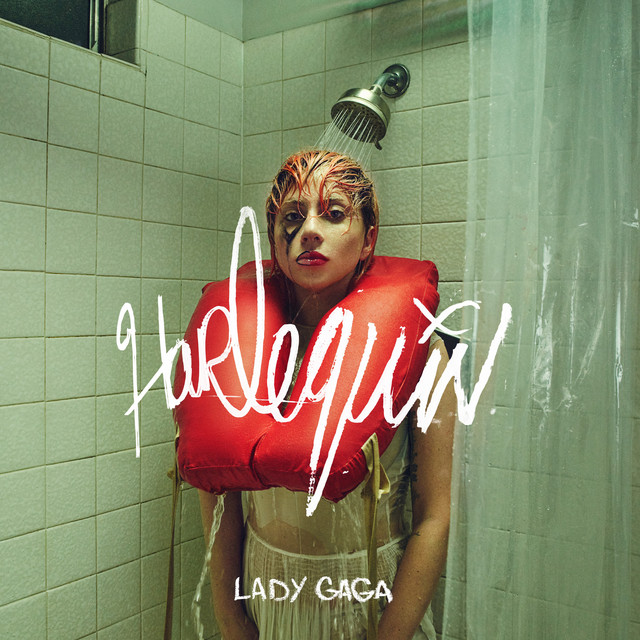Woodstock record learns from festival’s mistakes
October 20, 1999
Daily Staff Writer
“Woodstock 99”
Various Artists
You can’t accuse Woodstock ’99 promoters of not learning their lesson.
One of the biggest criticisms of the summer’s controversial music festival, which drew close to 250,000 people, was the order of the acts. Sheryl Crow before Limp Bizkit, Bush following Korn, etc.
But on “Woodstock 99,” the album, which was being promoted before the weekend concert was even over, there are no organization problems.
Producers John Scher, Michael Lang and Osie Kilkenny broke the double-disc set into two parts: the red, a more intense record, and the blue, a more mellow record.
In other words, Sheryl Crow comes before Elvis Costello, and Limp Bizkit follows Kid Rock.
“Woodstock 99” also succeeds, for the most part, in song selection. Korn’s set-opening angst anthem “Blind” kicks off the red record, while Chili Pepper’s entirely fitting closing rendition of Jimi Hendrix’s “Fire” closes it.
“Blind” includes an extended opening guitar riff, and a mid-song Jonathan Davis yelp, “Woodstock!” Serenading Woodstock’s greatest crowd, this song hits amazing emotional levels.
Kid Rock’s “Bawitdaba,” Live’s “I Alone” and Buckcherry’s “Lit Up” are other impeccable choices, capturing some of the festival’s musical high points.
However, “Break Stuff” would have been a better Limp Bizkit track than the tame “Show Me What You Got” (perhaps it’s the promoters’ way of condemning riots), and Metallica’s “Creeping Death” doesn’t quite do their headlining performance justice.
Of the 32 songs on the set, 22 were taken from the East Stage, where the fires and most of the alleged violence took place. Only James Brown, Wyclef Jean, Willie Nelson, The Tragically Hip and Counting Crows were left off. Not much of a loss.
The blue disc, which features the Dave Matthews Band ditty “Tripping Billies” and a fine performance of “Down So Long” by Jewel, is chock-full of pleasant surprises.
Elvis Costello, who seemed at bit out of place in Rome, N.Y., is amazing on “Alison,” while Guster’s “Airport Song” and Bruce Hornsby’s “Resting Place” are praise-worthy tunes.
Reliving a weekend as memorable as Woodstock is no easy task, but with the help of continuous crowd noise and even a warning interlude (though it could use more), “Woodstock 99” gives a valiant attempt.
Perhaps a few selections from the evening raves, which featured Fatboy Slim and Moby at their bests, would further capture the intensity of the event.
Maybe next time. If there is a next time.
3 1/2 STARS
— Corey Moss
“Antipop”
Primus
It is hard to believe anything could make you long for the days of “My Name Is Mud,” but Primus manages to do so with their new album “Antipop.”
Primus was always just on the edge of sucking anyway. It was always an inside joke as to whether they were really good and misunderstood or really bad and no one had figured it out yet.
Well, the mystery has been solved. You can stop wondering because Primus definitively stinks it up on this album. There isn’t one track that stands out.
“Antipop” is repetitious and dull. It lacks the energy of past efforts. Les Claypool’s maniacal five-string bass used to dominate the sound of Primus. Now it lays there quietly in the background on most tracks.
The sad part is there is virtually nothing to make up for it. If they had replaced it with some great guitarwork or more artistic lyricism, we would have something.
But Primus seems to have simply biffed it.
The humor is gone as well.
Hot bass licks and amusing storytelling packed previous albums like “Pork Soda,” “Frizzle Fry” and “Sailing the Seas of Cheese.”
“Greet the Sacred Cow” rises slightly out of the murk as it takes on some of the former glory of Primus, but this is mostly in terms of its lengthy, funkiness and repetition as Claypool sings “Line ’em up now” over and over again.
It’s vaguely hypnotic in a good way, but no one is going to be rushing home to stick this one on the CD player. More likely they just wouldn’t turn it off if it came on the radio because they wouldn’t notice it.
“Ballad of Bodacious” has a funkadelic ’70s feel that is fun for the first minute and then repeats itself to death like most Primus tunes.
These are the only high points on the album.
It may be time for even long-time Primus fans to give up on these guys. They haven’t done anything worthwhile on this new album, and they aren’t living up to the relatively low standards they set in past years.
2 STARS
— Greg Jerrett
“Happiness … Is Not a Fish That You Can Catch”
Our Lady Peace
Our Lady Peace begins their third album with a quick reminder of Raine Maida’s sincere fluctuating vocals as he belts out, “I don’t want to remember falling/ For your lies.”
The key to this Canadian band’s uniqueness (besides the unusual album title) is based in their memorable style of alternative music.
Between Mike Turner’s ringing guitar strings on “Potato Girl” and “One Man Army” and the pumping snares of Jeremy Taggart, Our Lady Peace drive each song into the realm of musical creativity and consistency that most bands can only dream to achieve.
The frosting on the cake is Maida’s painfully emotional vocals. On “Waited,” his voice jumps between tears and anguish as he screams, “I must be too dumb to be proud/ Cause I waited/ I waited here.”
At some points, Maida’s voice can be reminiscent of the whiny singing of Layne Staley from Alice in Chains, however these are the precise moments where the other band members take over.
The heavy-handed drums move Our Lady Peace throughout the album like stomping footsteps, while bright electric guitars sound like floating notes from a music box.
On songs like “Lying Awake,” Maida’s voice beautifully accompanies the wavering lead guitar on perfect key.
Our Lady Peace crafts in a mixture of distraught and richness that can only be attributed to the distinct songwriting style of never relying too much on one ingredient.
Our Lady Peace delivers a tasty and creative set of electric guitar-laden vocal panorama that makes “Happiness…” a fish you don’t have to try hard to enjoy.
4 STARS
— Ryan Rogness
“Live On”
Kenny Wayne Shepherd
If the blues were a religion, Kenny Wayne Shepherd would be its newest prophet.
Continuing the tradition of such prestigious artists as Jimi Hendrix, Albert King and Muddy Waters, he has come to the forefront of blues-rock resurgence.
At age seven, Shepherd witnessed the guitar prowess of Stevie Ray Vaughan, experiencing a divine revelation of sorts.
Playing with such notable bluesmen as B.B. King, Herbie Hancock and Vaughan’s backing band, Double Trouble, Shepherd has constantly developed his musical skills, recording successful debut and sophomore albums.
Early in his third album, “Live On,” Shepherd pays respect to some of the blues masters who have deeply influenced him.
A cover of Buddy Miles’ “Them Changes” features Shepherd emitting a Hendrixian surge of guitar energy that relentlessly drives the song, while lead vocalist Noah Hunt bares his soul, belting out lyrics that tell a classic blues tale.
During “Shotgun Blues,” Shepherd channels the spirit of his hero, Stevie Ray Vaughan, in a restructuring of Vaughan’s classic blues-rock hit, “Pride and Joy.” The track is not so much a rip-off as it is a chance for Shepherd to pay homage to his hero.
Built around the basic structure of “Pride and Joy,” “Shotgun Blues” features embellishments that enhance the original, including a harmonica part that seems indispensable.
Most astounding about the song, however, is the thoughtful guitar solo that says a great deal using well-placed notes rather than focusing on excessive shredding.
Ending the record is the instrumental “Electric Lullaby,” perhaps the most beautiful song included on “Live On.” It’s the kind of song that would be best experienced in surround sound, holding the hand of a significant other in a cozy room illuminated by a black lights and Pink Floyd posters.
During the title track, Hunt emphatically preaches to anyone who will listen, “You got to live on.” This song represents Shepherd’s prophet-like role, as he will be the key figure in ensuring that the blues spirit does indeed live on for generations to come.
4 STARS
— Jon Dahlager
“Alcatraz”
Mr. T Experience
Although Mr. T Experience had to sit back and watch as fellow pop/punkers like labelmates Green Day took over the rock world in the early ’90s, they looked forward and kept making albums.
Now with their ninth full-length in nearly that many years, MTX is finally moving on, mixing in styles usually unheard on pop/punk efforts.
“Alcatraz,” their poppiest album to date, lacks the repetitiveness that can sometimes make pop/punk boring. And, as always, Dr. Frank’s witty lyrics do not disappoint.
MTX actually stray away from their regular writing topic — girls — with “I Wrote a Book About Rock and Roll,” the leadoff track on the album and by far it’s best track.
The song is about a music critic who thinks he knows it all.
Dr. Frank’s lyrics spill out with the exact sarcasm he wrote them with: “Hey, thanks for the free CD/ I can sell it at the store down the block/And don’t be surprised if I say ‘kiss my ass’/ That’s how rock and rollers talk.”
Experiments come often on the record, while many songs lack the average pop/punk sound that helped make MTX so favorable. Dr. Frank steps on the distortion pedal less often, instead picking up his acoustic guitar, adding the sound of an organ to the mix.
Although it would usually be deemed a punk rock no-no, this evolution has immensely improved the band’s sound.
Other notable songs include “Naomi” and the humorous “She’s My Alcatraz,” which provides a much different view on the relationship gone wrong.
MTX has definitely found ways to improve the sound that carried them to the status they are today. After veering off in a new direction on “Alcatraz,” who knows what the tenth release will bring for the band?
3 STARS
— Dewayne Hankins
Ratings based on a 5 STAR scale.
Kids Rock
“Something to Write Home About”
The Get Up Kids
Vagrant
Making noise on college radio nationwide, The Get Up Kids’ latest record, “Something to Write Home About,” rests at the top spot this week on KURE’s Top 20 — and for a good reason.
The album’s compelling melodies and thought-provoking lyrics thrust the Kids into the forefront of the emo-core scene.
Carrying punk rock roots that stick out like month-old bleached hair, the band breaks bursts of distortion in between slower interludes on most of the songs.
“Red Letter Day” sees the Kids relishing in the union of thick, fuzzy guitars with stellar songcraft.
But it’s the band’s sensitive side that really captures the most attention. These dudes aren’t afraid to speak about their emotions, and that’s what makes their sound so captivating.
The beautiful melody on “Valentine” is enhanced by guitar picking resembling mild strikes of a xylophone. The song’s simple bass line sways along complemented by spine-tingling shimmering cymbals.
“Will you be my Valentine if I’m a world away?,” asks lead vocalist Matt Pryor, trading in his usually scratchy voice for a clearer one.
The lyrical content primarily consists of relationships both sprouting and tumbling down, loneliness arises as a recurring theme in the music.
As its title suggests, the album truly is something to write home about. Tell your mom about The Get Up Kids, ’cause at the rate they’re going, it won’t be long before they’re a household name.
FOUR STARS
— Conor Bezane






